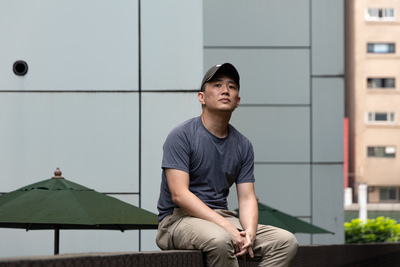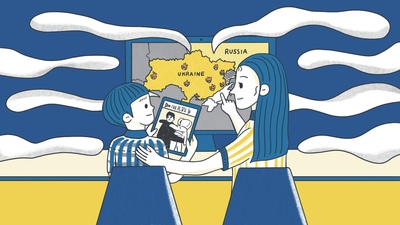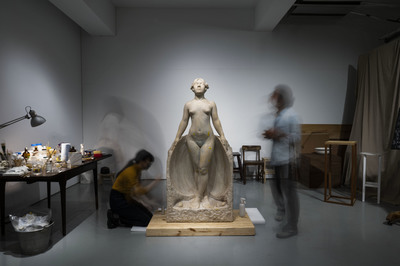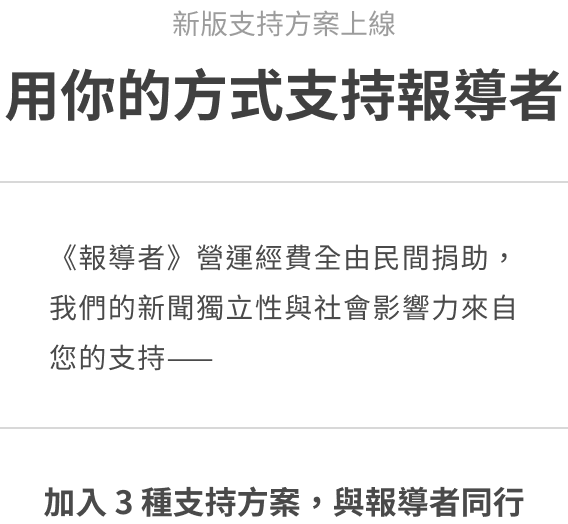
Taiwanese businessmen in China have enjoyed the spoils of China’s economic reform and political development after Tiananmen. Doing business in China could be risky, however. It is easily affected by the profound instability of business-political relationship in China, the shifting balance of global power, and other factors. As the Chinese Communist Party celebrated its centennial in 2021, what might be the fate of Taiwanese businessmen in China?
There is a well known story regarding Hu Xueyan (胡雪巖), a wealthy merchant in the twilight years of the Qing Dynasty. The story was popularised by the novelist Gao Yang (高陽) and is close to the hearts of Taiwanese business leaders. Gao Yang narrates the life of merchant Hu Xueyan in the form of a trilogy. Entitled Hu Xueyan (《胡雪巖》), the first part of the trilogy portrays Hu as the founder of Fukang Bank in the 1850s, a time when he took advantage of his political relationships. In the second part, entitled Red Top Merchant Hu Xueyuan, Gao Yang describes how Hu became acquainted with Zuo Zongtong, the Governor of Zhejiang and Fujian Provinces, promoted to the position of the supervisor of the Fuzhou dockyard, and took a loan from Hong Kong and Shanghai Banking Corporation (HSBC) to support military activities in Xinjiang. These actions earned him the title of Third Rank Commissioner. He gained the right to wear the official yellow-coloured robes worn by senior mandarins, as well as the Second Rank red cap insignia. This is how he earned the name “Red Top Merchant Hu Xueyuan”. The third part of the trilogy is called Lighting The Stage (《燈火樓台》). It describes how Hu founded the pharmaceutical company “Hu Qing Yu Tang” and borrowed money to speculate on raw silk. However, bureaucratic power struggles, internal management negligence, and a faltering economy combined to create a financial crisis for Hu. In just a few years, his career went up in a puff of smoke, and he remained in depression until the end of his life.
Many commentators believe that without reading Lighting The Stage, one cannot comprehend the profound meaning of Gao Yang’s trilogy. Since the late Qing dynasty, the modern capitalist class in China has been fragile, unable to receive protection from the governing elites, invariably losing their wealth. Since the Chinese Communist Party (CCP) established the new Chinese state in 1949, capitalists have been the object of vilification, with property rights difficult to protect, which in turn demotivated people from creating businesses. On top of this, they found it hard to keep up with changing economic reforms and transformations in the 1970s. This is why, in his speech at the 80th Anniversary of the founding of the CCP in 2001, Jiang Zemin (江澤民) formally proposed the “Three Represents” (「三個代表」) theory, shifting the discourse of the CCP. Jiang’s party discourse accepts those from the capitalist and intelligentsia classes who “represent the advancement of production and culture”. At Hu Jintao’s (胡錦濤) speech to celebrate the CCP’s 90th Anniversary, he reaffirmed that “reform and opening up” would continue, repeating the phrase 23 times. But at the CCP’s centennial, Xi Jinping (習近平) only repeated that phrase five times, with three of those referring to past events. The future policy focus will shift to “strengthening the country and building the military”. This major discursive change will have a lasting impact on the economy.
What will become of the Chinese capitalist class in the era of Xi? The Chinese tycoon Jack Ma (馬雲) had been forced out of the Alibaba Group operations, and the DiDi travel App had been removed from App stores. These “Red Top Merchants” previously enjoyed good relations with the CCP, but it seems that their stories have been absorbed into the narrative folds of the third part of Gao Yang’s trilogy, Lighting the Stage. Taiwanese businessmen in China have enjoyed the spoils of cross-strait business, but deep in their hearts, they must have shared the fear of Hu Xueyuan: their time is up.
Inspired by Gao Yang’s trilogy on the life of Hu Xueyan, I have divided the development trajectory of Taiwanese businessmen in China into three phases. The first period from 1992-2007 is the “Golden Period”. The second “Tidal Wave” period spans from the financial crisis in 2008 to the Sunflower movement of 2014. I call the third period from 2015 to the present the “Ebbing Tide” because of the receding Taiwanese investment in China.
Cross-strait investment data clearly shows the pattern of these three periods. The chart below shows the percentage of outbound Taiwanese Foreign Direct Investment (FDI) into China. That share rose from 1992 to 2007. After 2001 when President Chen Shui-bian (陳水扁) introduced a policy known as “active opening up and effective management”, the percentage level reached 70%. The period 2008 to 2014 were still known as the peak years, with outbound FDI reaching an all time high of 83% in 2010. Since 2015, levels began to drop, receding to 33.3% in 2020. This is a level last seen under President Lee Teng-hui’s (李登輝) so called “no haste, be patient” era. Before 2001 and after 2014, Taiwanese businessmen temporarily used the British Overseas Territories in the Caribbean to operate cross-strait funds. This tactic was used less after the US-China trade war in 2018. Since 2012, their southbound investment has increased 20-30%. The statistics show that for the past seven years or more, Taiwanese businessmen have been redeploying their investments outside of China.
After the initial fallout of the Tiananmen Square protests in 1989, US-China relations improved after Deng Xiaoping’s (鄧小平) 1992 Southern Tour and China-Taiwan cross-strait talks. China accelerated domestic economic reforms and opened up to international trade. This ushered in what I would call the “golden years” for Taiwanese businessmen in China. It lasted for 15 years, from 1992 to 2007. My research with Professor Cheng Chih-Peng (鄭志鵬) from National Tsing Hua University shows four factors giving Taiwanese businessmen an edge: good government-business relationships, local institutional innovation, an exclusionary Taiwanese business network, and the global manufacturing system.
1. Cultivating government-business relationships
Academic studies have found that cooperation with local governments is key to the success of Taiwanese businessmen in China, and that cooperation relies on personal relationships. Gift-giving and other non-transparent, but mutually beneficial exchanges are the foundation of these networks. Using their networks, the Taiwanese businessmen have been able to quickly replicate the Taiwanese-styled contract manufacturing system and build their export-oriented manufacturing bases in mainland China.
Cultural and linguistic intimacies also helped Taiwanese businessmen to form these relationships, giving them advantages–for example, the securing of cheap land and relaxed application of labour laws and environmental regulation–over other foreign investors. This is one reason behind the success of Taiwanese businessmen in China.
2. Local institutional innovation
There is a second reason behind Taiwanese businessmen’s high adaptability to local manufacturing conditions in China: their ability to negotiate with local governments’ favourable protection of property rights. According to Chinese laws dating from the 1990s, foreign enterprises must pay local governments “service fees” in joint ventures with township and village enterprises. Taiwanese businesses have been able to include these fees in their cost calculation in a structure known as “fake joint ventures, real foreign capital”. Wu Jieh-min (吳介民), research fellow at the Institute of Sociology, Academia Sinica, has undertaken brilliant research in his monograph titled Rent Seeking China: Taiwanese Businessmen, Guangdong Model and Global Capitalism. It shows how local governments not only provide political protection and preferential policies for Taiwanese businessmen, but also how such a favor effectively institutionalizes corruption as a fixed cost. Unlike other foreign investors, Taiwanese businessmen in China have been able to enter productive ventures with comparative ease, turn a profit, and then transfer joint ventures into sole proprietorships.
3. The global manufacturing system Taiwanese businessmen have successfully used the Chinese household registration (hukou) system to exploit migrant workers. They have done this with the assistance of local governments, taking advantage of China’s cheap land and labour to create a manufacturing system that integrates dormitories with factories, and governing these in a militaristic-bureaucratic fashion. These businesses enjoy good relationships with the local state public security services, working with national security units to crackdown on worker protests. In this way, they have succeeded in creating a production system based on a network of relationships across multiple levels. The origins of this manufacturing system can be traced back to Taiwan’s own machine-parts and dedicated processing factories, though it has been taken to the next level in their Chinese operations, enabling them to expand rapidly. These sweatshops can achieve super economies of scale. Take for example, the Yue Yuen shoe factory (裕元鞋廠) in Huangjiang, Dongguan, or Foxconn’s factory (富士康) in Longhua, Shenzhen.
4. Exclusionary Taiwanese Business Networks
Finally, despite the growth and maturity of their business in China, the Taiwanese businessmen have not only retained their tight-knit Taiwanese business relationships, but also sought to control the intermediary relationships with European and American customers. This means that partners up and down the supply chain are all Taiwanese, and so too are most of the senior level management. After work they socialise in Taiwanese owned restaurants, Karaoke bars, foot spas, and golf clubs where they exchange views on international clients or the local government, build relationships, and make joint investment decisions. They do this in the shared belief that should anyone run into trouble, they will be supported by the Taiwanese business community.
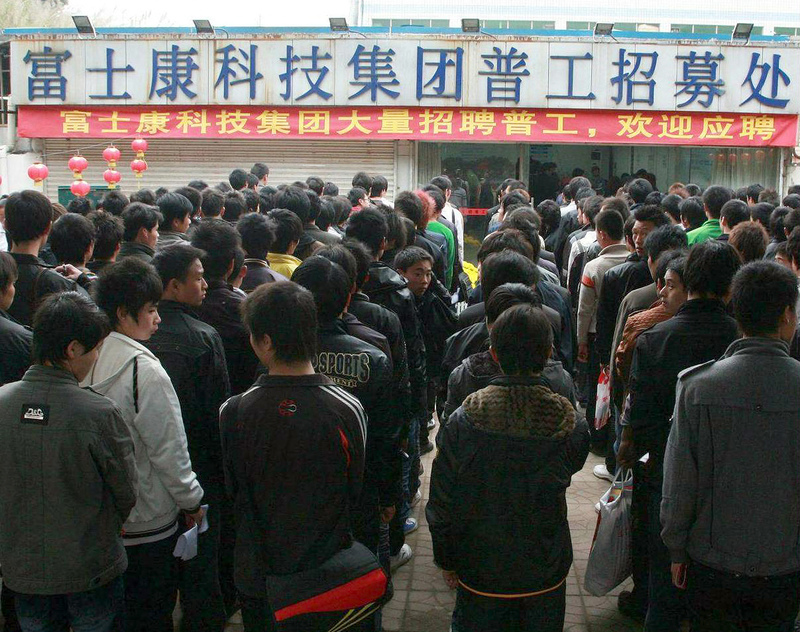
After the 2007 financial crisis, China began upgrading its industry. This crisis represented a turning point for Taiwanese businessmen, or what I would call the “tidal wave” period. The Taiwanese businessmen had two disadvantages; their technical abilities were second-rate, and they were dependent on orders from international buyers. After President Ma Ying-jeou (馬英九) took office in 2008, he signed the cross-strait trade deal (ECFA) with China which opened “three direct links” (大三通). But while many industries were included within this trade deal, it also served to strengthen the CCP’s political involvement in cross-strait business relations, and that included Taiwanese elections. In Taiwan’s 2012 Presidential election, Taiwanese businessmen publicly supported the “1992 Consensus” (「九二共識」) in the media, earning themselves public scorn for meddling in politics, as well as accusations that they were sacrificing the interests of the young generation as well as small and medium companies in the interests of big business. These activities spawned the 2014 Sunflower Movement in opposition to the Economic Cooperation Framework Agreement (ECFA). This period saw a serious challenge to the Taiwanese businessmen’s special position in China: their local institutional arrangements, close government-business relations, the authoritative control of factory management, and their exclusionary Taiwanese business networks.
The first transformation was the changing government-business relationships. China’s central government pushed to upgrade its own industries, reduced subsidies to foreign investors, and pushed to reduce reliance on Foreign Direct Investment. In 2006, the 11th Five-Year Plan pledged to support the development of private Chinese businesses. On January 1, 2008, the double taxation system was unified. This increased the tax rate for foreign invested enterprises from 17% to 25%, and reduced it to 25% for domestic enterprises, putting them both onto an equal footing in terms of competitiveness. Furthermore in 2007, Wang Yang (汪洋; Guangdong Province Party Committee Secretary) proposed a campaign under the slogan “Empty the cage and let the birds in” in reference to the Provincial Government’s ambitions to move traditional manufacturing industries away to make room for more advanced industries in the Pearl River Delta.
The second transformation was changing labour relations. China’s central government promoted labor and social insurance reforms, encouraging factories to move towards the western and central regions. “The Labour Contract Law” (《勞動合同法》) and “the Social Insurance Law” (《社會保險法》) were promulgated in 2008 and 2010 respectively. In May 2010, CCTV4 reported that a number of Foxconn employees committed suicide by jumping from buildings. In response to this, the Guangdong Provincial Government substantially increased minimum wages. In addition, labour unrest has increased in China’s southern and eastern regions, for example, employees of the Yue Yuen shoe factory went on strike in protest over social security and pension fund provisions. These strikes added to the already considerable pressure on Taiwanese businessmen in China.
Taiwanese businessmen largely operate low cost contract manufacturing businesses in China, which makes them dependent on purchases from upstream customers. This is a buyers market, and it makes the Taiwanese businessmen vulnerable to US-China trade or geopolitical conflicts. Yet they are largely unable to exert control in, nor ascend to a stronger position in the global value chain in terms of the distribution of power and profits. A minority of Taiwanese businesses–those that are large scale, well funded, or technologically advanced--have been able to increase labour wages to meet the shifting labor relations. But others have had no means but to move their factories into central and western provinces such as Sichuan, Hubei, Anhui, and Henan, or relocate to Southeast Asia.
In sum, Taiwanese businessmen in China have been displaced by a Chinese supply chain. This is because of the end to subsidies; the weakening of government-business relations; the loss of cheap labour and preferential access to land; and weakening of the Taiwanese business network brought about by changing customer requirements and technological outflow. In the face of these difficulties, Taiwanese businessmen in China are adopting the "three transfers" strategy that Professor Cheng Chih-peng and I call translocation, transformation, and transfer.
There is a saying: “Only when the tide goes out do you discover who has been swimming naked.” Although Taiwanese businessmen seem to have risen to rapid success in China, things changed after the Taiwan’s Sunflower Movement and during Xi Jinping’s consolidation of power. China’s government unleashed a wave of nationalism which worsened their international relations, particularly with the U.S. and Taiwan. As most Taiwanese businessmen operating in China have limited technical abilities, they have been forced to adopt the so-called “three transfers” strategy.
- Translocation: Reducing production costs by relocating manufacturing bases to locations with lower wages and cheaper land.
- Transformation: developing own-brand products, moving up the value chain, or deepening roots in China’s market.
- Transfer: factory closures. Forced, voluntary, or other exit strategies.
The most common strategy for Taiwanese businessmen is translocation. The diagram below shows the number of employees in the largest 1,000 Taiwanese businesses in northern, eastern, southern, central, western and northeast China from 2004 to 2018. Following progressive increases in Guangdong’s minimum wages, Taiwanese businesses have moved to eastern China. Beginning in 2007, numbers of employees of Taiwanese owned businesses in eastern China exceeded those in southern China. In the south, those numbers declined from nearly 1,100,000 in 2009 to about 700,000, while numbers in the east grew to a peak of 1,900,000 in 2012, and have remained close to that level since. Numbers of those employed by Taiwanese businesses in central and western China have also grown, but have not yet exceeded 200,000. The chart shows the translocation of the largest 1,000 Taiwanese businesses in China towards the central and western provinces. It shows that the total number of employees has stagnated, or even declined since 2014. As financial reports are only available up to 2018, we are unable to see the undoubtedly unfavourable impacts of the trade war and coronavirus over the past 3 years.
The translocation strategy is the best strategy for large scale manufacturers operating at scale but with technical limitations, such as Foxconn. In the wake of a series of attempted suicides during the first six months of 2010, Foxconn’s parent company, the Hon Hai Precision Industry Co., Ltd. (鴻海科技集團), undertook a Westward translocation, taking with them their supply chain of Taiwanese electronics suppliers. Nevertheless, the Hon Hai Co., Ltd. still relies heavily on cheap Chinese migrant labour, and has been unable to move its main production base into Taiwan’s New Southbound Trading Partners (countries in partnership with Taiwan’s New Southbound Policy; 新南向國家). With the rise of wages in China, Apple’s redistribution of production orders to other contract manufacturers, the US-China trade war, and the ongoing COVID-19 pandemic, medium- and small-sized firms have found it more difficult to translocate their factories than their larger counterparts. Their inland operations management and supervision costs are higher, quality control is harder, and it is more difficult to get staff to work overtime when compared with their operations on China’s southeastern seaboard. This is why most translocations of medium and small factories have failed.
In 2015, the State Council of the People’s Republic of China (中國國務院) announced its 10 Year “Made in China 2025” strategy which promised to prioritise China’s domestic supply chain. From this point on, Chinese domestic firms began to encroach upon and gradually dismantle the exclusionary business networks meticulously created by Taiwanese businessmen in the supply chain. Some Taiwanese firms attempted to transform their operations by shifting focus on China’s huge consumer market, but there were great risks associated with their transformation into operating own-brand products and new distribution channels. Also, these Taiwanese businesses remained primarily contract manufacturers, despite their attempts to create own-brand products. As contact manufacturer orders fell, so did profits, and Taiwanese businesses began to downsize, consolidating their local operations in an attempt to transfer manufacturing costs and risks to Chinese domestic firms, while they transferred their own focus to international trade.
In the services sector, Taiwan’s large food producers and intermediary producers have performed below expectations in China. The fiercely competitive e-commerce market has nudged bricks and mortar firms out, with many factories and stores quietly exiting China. Taiwan’s Uni-President Enterprises Corp. (統一集團) revenue from China peaked at 27% of its total revenues in 2013, but fell to 18% by 2019. Both the Tsann Kuen Enterprise Co., Ltd. (燦坤集團) and Test-Rite International Co., Ltd. (特力集團) had great ambitions for their Chinese operations, with record-breaking investments into the Chinese service sector. However, growing Chinese e-commerce competition forced both to retreat. There are of course some exceptions; a small number of financial services companies such as Chailease Finance Co., Ltd. (中租控股) and Fubon Financial Holding Co. (富邦金控) have expanded in order to support Taiwanese manufacturing expansion in Western China. But these are the exception not the rule, and the overall trend is an ebbing tide of Taiwanese capital.
Donald Trump’s election and the re-election of Taiwan’s DPP in 2016 changed both US-China and cross-strait relations. China’s 2018 constitutional amendment abolished the two-term limit for presidency, allowing Xi Jinping to remain president for life. This move delivered another wake up call to the West. In the years that followed, 2019 saw the escalation of the US-China trade war, a shocking repression of Hong Kong’s anti extradition bill movement, and the 2020 outbreak of the COVID-19 pandemic from Wu Han. Taken together, these factors have driven global public opinion of China to an historic low. This makes for a dull and despondent atmosphere for the CCP’s centennial in 2021, where speeches referring to the sweat and blood of the Chinese people ring hollow.
Xi Jinping’s speech at the CCP’s centennial celebration revealed a major policy shift. We can see this by comparing the language he used to that of his predecessors Hu Jintao and Jiang Zemin at the CCP’s 90th and 80th Anniversaries. The phrase “reform and opening” was used only five times, just one fifth of the usage in Hu Jintao’s speech. “Democracy” got just six mentions compared to 40, and was only used in the context of the Party’s political catchphrases “People’s Democracy” and “Democratic Political Parties”. The term “For the People” disappeared altogether. In contrast, Xi repeated the phrase “Great Rejuvenation of the Chinese Nation” 21 times.
Unlike both his predecessors, Xi Jinping did not acknowledge the Party’s previous mistakes. In Jiang Zemin’s 80th Anniversary speech, he promoted his theory of “The Three Represents”, but he also criticised Mao Zedong thought in the following quote: “Our Party made mistakes and even suffered serious setbacks in some historical periods . . . The experience and lessons our Party has in this regard have been reviewed systematically . . . these are something that we must never forget.” Hu Jintao repeated this reference to lessons learned from the Cultural Revolution, but Xi did not.
In his 90th anniversary speech, Hu Jintao defined “social democracy” as such: “We have resolutely advanced our commitment to reform of the political system, developed a socialist democracy, and have abolished the life tenure of Party Leaders. This ensures orderly transition of power from State Institutions and leaders.” But in Xi’s speech, there are no longer any references to these inner-Party elements of social democracy. This is because he has broken Hu’s commitment to abolishing life-tenure of Party leaders.
Rome was not built in a day. The past seven years have seen a number of significant developments: US-China relations have transformed; global supply chains have shifted; Xi Jinping has extended his presidency indefinitely; the Hong Kong National Security Act has pushed democracy backwards; a once-in-a-century pandemic has endangered the world; and the CCP’s centennial celebrations revealed more centralisation of power and greater economic restrictions. Reform, opening up, and democracy are no longer part of the political discourse. These have been replaced by xenophobic nationalism.
Jack Ma, like Gao Yang’s fictional figure Hu Xueyan, comes from Hangzhou. Despite being the 11th richest person in the world in 2020, he disappeared for 7 months following Ant Financial’s (螞蟻金服) listing on the New York Stock Exchange. During this time, his Alibaba Group was under investigation for suspected monopoly behaviour. He appeared haggard when he finally reappeared in May 2021. His Taiwanese business partner Joseph Tsai (蔡崇信) bought the US basketball team Brooklyn Nets in 2017, and appeared to have shifted his investment and business focus elsewhere. British media have recently reported that Jack Ma and Joseph Tsai have used their shares in Alibaba Group as collateral to borrow from UBS, Credit Suisse, Goldman Sachs, and others. Who knows what their next step will be?
Lighting the Stage–a record of the twilight years of the Red Top Merchant Hu Xueyuan–strikes an alarming chord in our own times. It shows us the profound instability of business-political relationships in China. Despite great technological and economic progress in China, the capitalist class could not rely on institutional support for personal safety and property security. Doing business in China (including Taiwanese businessmen) is risky; it still relies on good business-political relationships, and these are easily affected by changing international relations or high-level power struggles. Be they seen by the CCP as a political threat or ensnared in an abyss of financial debts, Taiwanese businessmen in China might begin to see the unfolding of an inevitable fate: their time is up.
(To read the Chinese version of this article, please click: 林宗弘/中共百年黨慶,台商「燈火樓台」?)
用行動支持報導者
獨立的精神,是自由思想的條件。獨立的媒體,才能守護公共領域,讓自由的討論和真相浮現。
在艱困的媒體環境,《報導者》堅持以非營利組織的模式投入公共領域的調查與深度報導。我們透過讀者的贊助支持來營運,不仰賴商業廣告置入,在獨立自主的前提下,穿梭在各項重要公共議題中。
你的支持能幫助《報導者》持續追蹤國內外新聞事件的真相,邀請你加入 3 種支持方案,和我們一起推動這場媒體小革命。


